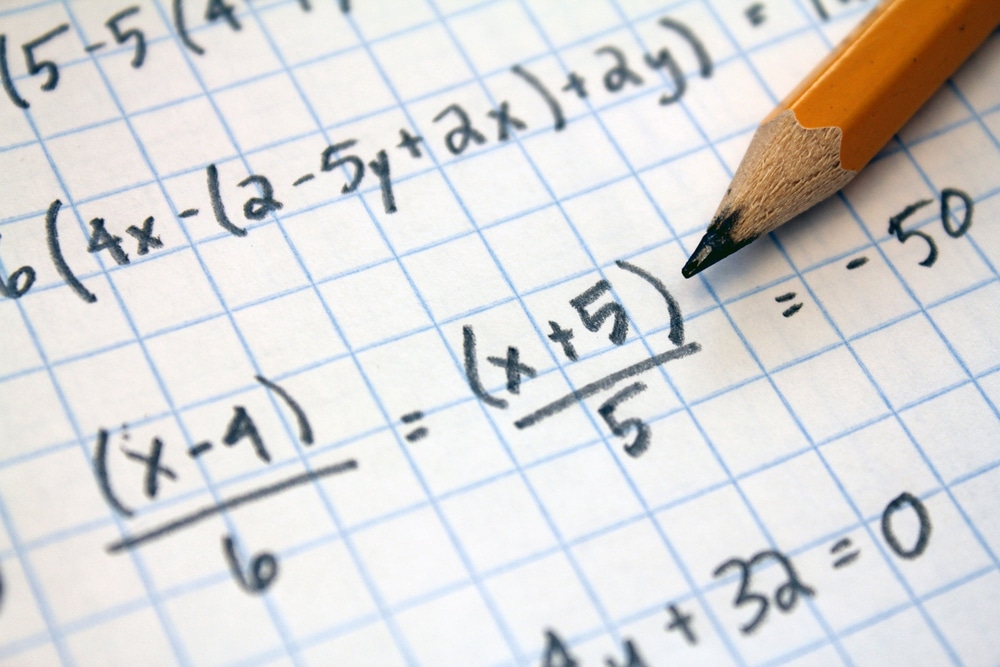International Math Olympiad
The IMO Foundation is responsible for organizing the International Mathematical Olympiad, a mathematics competition. The International Math Olympiad aims to evaluate the mathematical expertise and potential of students from around the world.
Students who take part in the International Math Olympiad are given the opportunity to evaluate their level of comprehension of the material and their capacity to solve a variety of mathematical problems involving their contemporaries from all over the world. In addition to giving students the opportunity to conduct their own evaluations, the IMO also presents its host nation with a number of honors and grants.

You don’t need to look any further since we’ve got you covered if you have an increasing interest in mathematics and are willing to explore the fascinating world of the International Mathematical Olympiad. We will acquire further knowledge and information about the IMO.
What is the International Mathematics Olympiad?
What is the International Mathematics Olympiad? The IMO is the oldest of the International Science Olympiads. It is a mathematical competition open to students who have not yet entered university. In 1959, Romania played host to the very first IMO conference. Since then, with the exception of the year 1980, it has been held annually.
More than one hundred countries, accounting for more than ninety percent of the world’s population, each submit teams consisting of up to six students, in addition to a team leader, a deputy leader, and observers. Despite its connection to UNESCO, the International Mathematical Olympiad is a self-governing autonomous organization. It was founded in 1948. Its Council, known as the IMO Advisory Board, is chosen by the countries participating in the organization.
The objective of the International Math Olympiad is to bring together young people from different parts of the world so that they can compete against one another while enjoying the intellectual difficulties that mathematics presents. Because of this, mathematics receives a boost in each participating country as young people attempt to improve their chances of being selected.

Although it is evident that this is a competitive event, most participants report that the people they meet and the shared thrill of discovery are what they consider to be the most worthwhile aspects of the experience. At IMO events, it is not unusual for people to form connections that last a lifetime.
The material ranges from extremely challenging problems in algebra and pre-calculus to problems in areas of mathematics that are not typically taught in secondary or high school and frequently are not taught at the university level either. These areas include projective and complex geometry, functional equations, combinatorics, and well-grounded number theory, all of which require extensive knowledge of theorems.
There is a theory that states anyone with a fundamental understanding of mathematics should be able to understand the issues, even if the solutions demand a great deal more knowledge. Although calculus may be used in the solutions, it is never necessary.
The proponents of this principle assert that it enables a greater degree of universality and generates an incentive to locate problems that are elegant and appear to be deceptively straightforward but do, in fact, call for some degree of ingenuity and, frequently, a significant amount of ingenuity in order to earn all of the points for a given IMO challenge.
Who is Eligible for International Olympiad?
Who is eligible for International Olympiad? In order to be able to compete in the International Mathematical Olympiad, you need to be a person, have reached the age of 0 at the very latest, and have not yet reached the age of 20 on the day of the second contest paper (generally in July). In most cases, contestants are required to either be citizens or long-term residents of the nation that they are competing for.
The competition’s objective was to encourage and assist in the development of problem-solving skills in young mathematicians (often those in school). Participants in the competition are not allowed to be presently enrolled in any academic classes. Questions are selected from the four subject areas of algebra, combinatorics, geometry, and number theory. It is optional and expected of students that they have any prior knowledge or experience in calculus.

Students are placed on national teams consisting of up to six other students; however, in the IMO, each student competes as an individual. Every nation that takes part in the International Math Olympiad is allowed to send a maximum of six students to participate there. Every country taking part in the competition has an organization that is in charge of choosing its team.
This varies from country to country; it could be the Ministry of Education, a Mathematical Society, or an Educational Charity. Some countries even have their own educational charities. You need to find out which organization in your country is in charge of choosing the athletes for the national teams.
Math competitions in secondary schools (also known as high schools) in your nation are typically organized and run by a recognized organization. This is the standard setup. If you are a young person who has an interest in mathematics and would like to get started, you can start by obtaining previous years’ competition papers and then practicing with a great number of problems.
What is the Prize for Winning Math Olympiad?
What is the prize for winning Math Olympiad? In the International Math Olympiad, the competitors’ individual scores are tallied and used to create a ranking. Medals are given to the participants who finish in the top spots in their respective categories; nevertheless, little under half of the entrants get a medal.
The cutoffs, or the lowest scores required to receive a gold, silver, or bronze medal respectively, are then selected in such a way that the number of gold medals, silver medals, and bronze medals awarded is approximately proportional to one another in the ratio 1:2:3. An honorable mention is given to competitors who did not come away with a medal but who scored seven points or above on at least one of the problems.
Special rewards might be given out in the event that a problem is solved in a particularly elegant way or in a way that makes useful generalizations. The most recent occurrences of this were in 1995 (Bulgaria’s Nikolay Nikolov) and 2005 (Romania’s Iurie Boreico), although prior to the 1980s, it was more common. Iurie Boreico, a student from Moldova, was given the exceptional achievement award in 2005 for his solution to Problem 3, which involved an inequality involving three variables.
The rule that states that no more than half of the competitors can take home a medal is occasionally disregarded if doing so would lead the overall number of medals to diverge an excessive amount from the number of competitors. The last time this occurred was in 2010, 2012, and 2013.
In 2012, the choice was to award medals to either 226 (41.24%) or 277 (50.55%) of the 548 contestants, and in 2013, the choice was to award medals to either 249 (47.16%) or 278 (52.65%) of the 528 contestants. The six contestants from North Korea were excluded from the medal count in 2010 because they were not eligible for a medal. In these competitions, little more than half of the participants were given medals for their efforts.
What is the Benefit of Winning the Olympiad?
What is the benefit of winning the Olympiad? Participating in the International Math Olympiad or any other Math Olympiad can help you develop both your mathematical and life skills, as well as introduce you to new friends and one-of-a-kind opportunities. It can also improve your chances of being accepted to prestigious universities and potentially make you eligible for scholarships.
Developing One’s Capacity in Math
Participating in the International Math Olympiad or any Math Olympiad can undoubtedly help you improve your mathematical abilities. Participating in the Math Olympiad is excellent preparation for you if you are considering majoring in mathematics or pursuing a job that is mathematically linked.

You will broaden your talent for mathematics in ways that are both novel and entertaining. In competitions such as the Arithmetic Olympiad, you won’t be asked the normal (or, as some might say, “boring”) math questions; rather, you’ll be exposed to mathematics that is significantly more intriguing, creative, and difficult than what is typically covered in math classes.
Alumni of the Math Olympiad stated that the program taught them how to think, how to study, and how to think about mathematics on a more profound level. Some people even make the comparison that this level of mathematics is equivalent to philosophy.
Therefore, your mathematical skills will increase, but competing in the International Math Olympiad will force you to go into greater depth. You will become proficient in complex, brain-stretching, and inventive mathematical procedures that will push you to your intellectual limits and encourage your intellectual development.
Unlocking the solutions to challenging Math Olympiad questions can be a source of great satisfaction, but only if your interest in mathematics is strong enough.
Building Life Skills
You will gain essential life skills such as problem-solving, critical thinking, and logical reasoning as you work on improving your capacity to solve challenges.
You’ll gain the ability to exercise patience and tenacity, as well as the awareness necessary to know when to work more diligently and when to seek assistance. You will build both your ability to work well with others and to take the lead while participating in this activity.
As you prepare for the most difficult level of Math Olympiad events, you will develop your independence and enhance your ability to study effectively. You’ll also become better at organizing your thoughts and being able to articulate them.
Every one of these abilities is necessary for your future success, whether it be in college or in your chosen field of work.
New Friends
You will get the chance to interact with other students who share your enthusiasm for mathematics if you participate in International Math Olympiad. If you participate at the national or international level, you will encounter talented students from all over the country and from all over the world who have the same goals and interests as you do.
According to former participants, being a part of the community of math competitions is comparable to having access to a peer group at a prestigious university, but it takes place many years earlier. They claim that instead of a ruthlessly competitive environment, Math Olympiad fosters an environment that is collaborative and helpful. They nearly look forward to the conversations in the group and the long bus rides as much as they do the math lessons themselves.
Unique Experiences
Students that take part in the Math Olympiad are given the opportunity to participate in a wide array of one-of-a-kind activities. You won’t find another set of math problems quite like the ones you’ll have to solve, and it’s not every day that you have the chance to compete in math contests that take you all across the country or perhaps the world.
Recent competitions for the International Math Olympiad have taken place in Melbourne, Australia; Bath, England; Chiba, Japan; Oslo, Norway; Cluj-Napoca, Romania; Rio de Janeiro, Brazil; Hong Kong, China; and Cape Town, South Africa; among other cities.
Also, it has been revealed that Japan will serve as the host nation for the International Mathematical Olympiad 2023, which will take place in Chiba City, Chiba Prefecture, Japan, over the course of approximately ten days in the month of July 2023.
Increased Possibilities for College
Even if you don’t make it all the way to the national or international Math Olympiad, simply participating in the AIME might set you apart from other applicants when you’re trying to get into college. Scholarships may also be granted by some organizations on the basis of the American Mathematics Competitions and American Invitational Mathematics Examination results attained by students.
On the application forms for both MIT and Caltech, prospective students are able to fill in the input blanks with their highest possible AMC and AIME scores. Colleges in the Ivy League, such as Stanford, require applicants to submit their AMC and AIME scores as supplemental materials to the Common Application. Your application to prestigious universities would benefit tremendously from your strong performance on these examinations.
Naturally, if you do well enough in mathematics to qualify for either the United States Mathematical Olympiad or the International Mathematical Olympiad, universities will take notice of your exceptional ability in the subject. Because so few kids make it to the national or international level of the competition, if you manage to do so, you will stand out from the other participants in a significant way.
What other Math Competitions can High School Students join?
What other math competitions can high school students join? When you’re in high school, getting involved in other math groups and competing in math competitions can help you become ready for the International Math Olympiad. And because it is so tough to qualify for the Math Olympiad, becoming a member of one of the many other math organizations out there will provide you with more opportunities to showcase your mathematical prowess.

The following are some additional popular and well-respected math competitions for high school students:
American Regions Math League (ARML)
Mathematicians from throughout the country gather each year at the universities of Iowa, Penn State, the University of Nevada at Las Vegas, and the University of Alabama in Huntsville to compete in the annual ARML tournament. Students compete against one another in teams of fifteen with two coaches, and the top teams are awarded not just prestige but also financial prizes.
Math League
Each year, more than one million pupils take part in competitions hosted by the Math League. Students in high schools compete in events on a regular basis—six times a year—both as individuals and as teams representing their whole schools. Mathematical concepts such as geometry, algebra, trigonometry, logarithms, probability, and many more are used in the tasks that are tested at both the regional and national levels of competition.
MathWorks Math Modeling (M3) Challenge
The M3 Challenge is open to students in the eleventh and twelfth grades, and it is designed to offer high school students an idea of the kinds of issues that are encountered by professional mathematicians in the real world.
Competing student groups of three to five members, each led by a teacher-coach, are tasked with finding a workable solution to a real-world challenge within a set amount of time and using just the materials provided. The six teams that made it to the final round will present their work in New York City, where they might win cash prizes of up to $20,000 each.
MathCON
Since its inception in 2008, MathCON has seen participation from over 200,000 students spanning grades 4 through 12. The annual competition and the training that leads up to it help competitors improve their mathematical education as well as their mathematical talents, but there are no cash rewards granted.
Mathletes
Mathletes Clubs may be found in a lot of different high schools, and their goals are to test mathematically brilliant kids, provide them with entertainment, and get them ready to compete in high-quality math tournaments. Some Mathlete Clubs provide assistance to students in their preparation for the American Mathematical Competition (AMC), the International Mathematical Olympiad (AIME), and the Mathematical Olympiad (MO).
Modeling the Future (MFT) Challenge
Students participate in a research project that models data taken from the real world in order to do risk assessments and provide suggestions to businesses, industry groups, governments, or other types of organizations. The MTF offers a total of $60,000 in prizes, including a college scholarship worth $25,000 for the winner.
Teams that make it to the final round are awarded a trip to New York City with all expenses paid. During their time there, they will take part in the Modeling the Future Symposium and speak with working actuaries to gain insight into how they might use math in their future employment.
If you need help putting the finishing touches on your college applications, at AdmissionSight, we have over 10 years of experience guiding students through the competitive admissions process
AdmissionSight can help you put your best foot forward when applying to college. Contact us today for more information on our services.





































